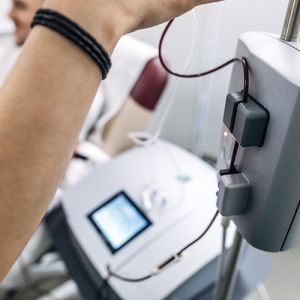Lupus Treatment UK
Lupus Treatment UK
What you need to know
about Lupus Treatment UK
Your entire body may become inflamed if you have lupus, a chronic autoimmune disease. Despite frequently being a localised disorder, it isn’t always.
An autoimmune disease is a condition in which your body’s immune system upsets and destroys its own cells.
Many lupus patients have a mild form of the illness, but if left untreated, it can get worse. Since there is presently no known cure for lupus, treatment focuses on symptom relief and inflammation reduction.
Pure Medical provide Lupus Treatment UK, see details below.
modalities to ease chronic health issues with these Lupus Treatments
Lupus Treatment UK
Even while there is currently no cure for lupus, there are medications and treatments that can help you manage your symptoms and prevent flare-ups. When contemplating lupus therapy, a doctor will take into account how severe your lupus symptoms are.
You must make regular doctor’s appointments. This enables them to monitor your health more closely and gauge how successful your treatment plan is reducing your symptoms.
Over time, your lupus symptoms may also alter. As a result, your doctor may alter your prescription regimen or change the amount of an existing medication.
According to the National Health Service (NHS), your doctor could suggest lifestyle modifications in addition to medicine to help control your lupus symptoms. These might include items like:
- Avoiding excess exposure to UV light
- Eating a healthy diet
- Taking supplements that may help to reduce symptoms, such as vitamin D, calcium, and fish oil
- Getting regular exercise
- Quitting smoking, if you smoke
Medical Lupus Treatment UK
Depending on your symptoms and how severe they are, your doctor may prescribe a different drug. Several ways that medications can help with lupus symptoms include:
lowering your immunological response
lowering your level of swelling or inflammation aids in preventing harm to your joints or internal organs.
Examples of lupus drugs, per a 2019 review, include:
- Medications that are non-steroidal anti-inflammatory (NSAIDs). These can lessen pain and swelling. Examples include over-the-counter drugs like Paracetamol and ibuprofen.
- Antibiotics for malaria. The infectious disease malaria was once treated with these medications. Doctors now treat malaria with newer treatments since the organism that causes the disease has become resistant to older ones. Antimalarial drugs help treat lupus symptoms like fatigue, rashes, and joint discomfort. They can also aid in reducing lupus flare-ups. They are advised throughout pregnancy to lower the chance of complications from the pregnancy and the parent’s disease going worse.
- Corticosteroids. These medications can lessen discomfort and swelling while also calming your immune system. They are available as tablets, topical creams, and injections, among other forms. Prednisone is a corticosteroid, as an illustration. Infections and osteoporosis are two unwanted consequences of corticosteroids. It’s critical to limit dosage and usage time.
- Immune suppressants. Your immune system is suppressed by these drugs. They are normally only used when lupus is severe or is affecting numerous organs because they are quite potent and can reduce your body’s fight against infection. They’re also employed to lessen exposure to and consumption of steroids. They are also known as steroid-sparing drugs for this reason. Examples include azathioprine, mycophenolate mofetil, methotrexate, and mycophenolic acid. These drugs are utilised as lupus treatments off-label.
- Biologics. Medications of a biological origin are known as biologics. A biologic called belimumab (Benlysta) is used to treat lupus. It’s an antibody that has the ability to stop a body protein necessary for the immune response.
It’s crucial to keep an eye on how your symptoms are affected by your prescriptions. Inform your doctor if your medicine has side effects or stops treating your symptoms.
Become more knowledgeable about the various lupus drugs.
Lupus diet
A particular diet for lupus sufferers has not been established by medical authorities. But a review for 2019 Several dietary adjustments, according to a reliable source, may be advantageous.
Try to consume a diet that is generally well-balanced. Various examples of this include:
- Salmon, tuna, and mackerel are examples of omega-3-rich fish.
- Calcium-rich foods include low-fat dairy products.
- Sources of whole grain carbohydrates
- A combination of vibrant fruits and veggies
You may need to watch your intake if you eat seafood rich in omega-3 fatty acids. These fish may have high mercury concentrations.
Additionally, due to the medications that people with lupus normally take, there are particular foods that they should generally avoid. The following are some examples of foods to avoid:
- Alcohol. Numerous drugs and alcohol might have interactions. For instance, it may result in gastrointestinal bleeding in NSAID users. Inflammation risk may also rise as a result.
- Alfalfa. Alfalfa seeds and sprouts contain the L-canavanine amino acid. This amino acid may cause lupus flare-ups by causing more inflammation.
- Foods that are rich in cholesterol and salt. Limiting your intake of salt and cholesterol is good for more than simply your general health. Additionally, it aids in avoiding bloating and blood pressure increases brought on by the usage of corticosteroids.
Additionally, if you lack vitamin D and experience photosensitivity as a result of your lupus. A vitamin D supplement may be beneficial. Online stores sell vitamin D pills.
Find out more advice about eating well when you have lupus.










